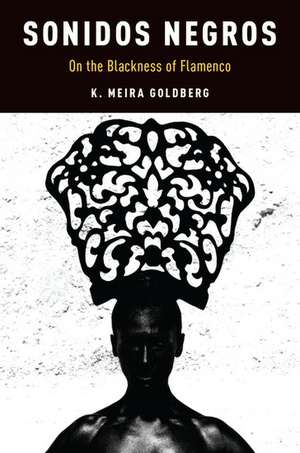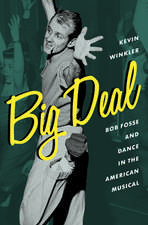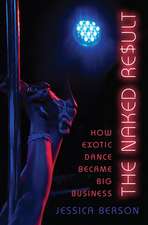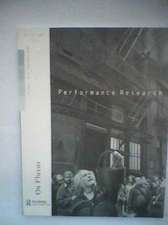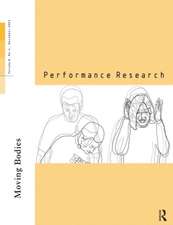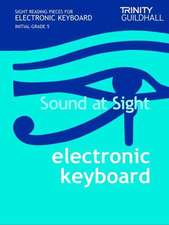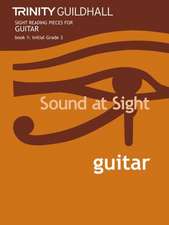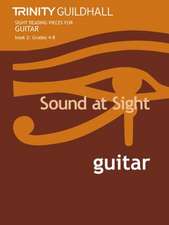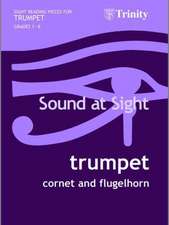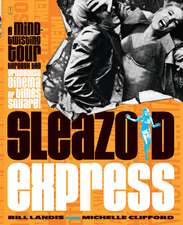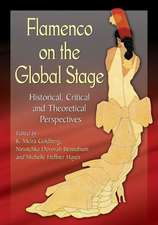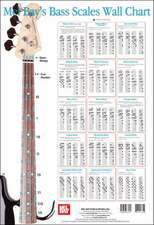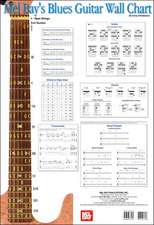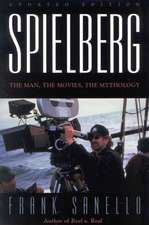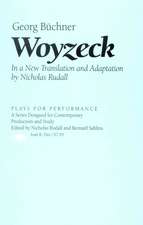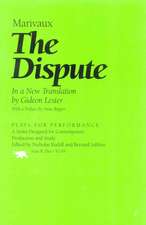Sonidos Negros: On the Blackness of Flamenco: Currents in Latin American and Iberian Music
Autor K. Meira Goldbergen Limba Engleză Paperback – 31 ian 2019
Toate formatele și edițiile
| Toate formatele și edițiile | Preț | Express |
|---|---|---|
| Paperback (1) | 252.70 lei 31-37 zile | |
| Oxford University Press – 31 ian 2019 | 252.70 lei 31-37 zile | |
| Hardback (1) | 587.56 lei 31-37 zile | |
| Oxford University Press – 31 ian 2019 | 587.56 lei 31-37 zile |
Din seria Currents in Latin American and Iberian Music
- 15%
 Preț: 246.84 lei
Preț: 246.84 lei -
 Preț: 252.53 lei
Preț: 252.53 lei - 14%
 Preț: 155.46 lei
Preț: 155.46 lei - 8%
 Preț: 218.72 lei
Preț: 218.72 lei - 9%
 Preț: 220.13 lei
Preț: 220.13 lei - 5%
 Preț: 266.75 lei
Preț: 266.75 lei - 29%
 Preț: 501.77 lei
Preț: 501.77 lei - 6%
 Preț: 230.33 lei
Preț: 230.33 lei - 15%
 Preț: 412.89 lei
Preț: 412.89 lei - 10%
 Preț: 437.84 lei
Preț: 437.84 lei - 18%
 Preț: 128.58 lei
Preț: 128.58 lei - 23%
 Preț: 375.50 lei
Preț: 375.50 lei - 27%
 Preț: 448.52 lei
Preț: 448.52 lei - 27%
 Preț: 488.32 lei
Preț: 488.32 lei - 23%
 Preț: 198.93 lei
Preț: 198.93 lei - 10%
 Preț: 254.58 lei
Preț: 254.58 lei - 12%
 Preț: 286.27 lei
Preț: 286.27 lei - 27%
 Preț: 346.62 lei
Preț: 346.62 lei -
 Preț: 341.88 lei
Preț: 341.88 lei - 27%
 Preț: 384.60 lei
Preț: 384.60 lei - 27%
 Preț: 353.47 lei
Preț: 353.47 lei - 27%
 Preț: 342.73 lei
Preț: 342.73 lei - 12%
 Preț: 305.42 lei
Preț: 305.42 lei - 22%
 Preț: 363.56 lei
Preț: 363.56 lei - 12%
 Preț: 322.41 lei
Preț: 322.41 lei - 23%
 Preț: 713.50 lei
Preț: 713.50 lei - 27%
 Preț: 370.02 lei
Preț: 370.02 lei -
 Preț: 248.75 lei
Preț: 248.75 lei - 18%
 Preț: 341.86 lei
Preț: 341.86 lei - 7%
 Preț: 304.89 lei
Preț: 304.89 lei - 11%
 Preț: 446.41 lei
Preț: 446.41 lei - 25%
 Preț: 586.53 lei
Preț: 586.53 lei - 12%
 Preț: 517.68 lei
Preț: 517.68 lei - 9%
 Preț: 479.76 lei
Preț: 479.76 lei - 21%
 Preț: 418.70 lei
Preț: 418.70 lei - 14%
 Preț: 303.19 lei
Preț: 303.19 lei
Preț: 252.70 lei
Preț vechi: 265.49 lei
-5% Nou
Puncte Express: 379
Preț estimativ în valută:
48.38€ • 49.75$ • 40.13£
48.38€ • 49.75$ • 40.13£
Carte tipărită la comandă
Livrare economică 06-12 februarie
Preluare comenzi: 021 569.72.76
Specificații
ISBN-13: 9780190466923
ISBN-10: 0190466928
Pagini: 320
Ilustrații: 39 images
Dimensiuni: 231 x 155 x 23 mm
Greutate: 0.39 kg
Editura: Oxford University Press
Colecția OUP USA
Seria Currents in Latin American and Iberian Music
Locul publicării:New York, United States
ISBN-10: 0190466928
Pagini: 320
Ilustrații: 39 images
Dimensiuni: 231 x 155 x 23 mm
Greutate: 0.39 kg
Editura: Oxford University Press
Colecția OUP USA
Seria Currents in Latin American and Iberian Music
Locul publicării:New York, United States
Recenzii
Sonidos Negros is a groundbreaking work which addresses an essential period of the history of flamenco dance and one which has been under-researched and largely unknown ... Readable and revelatory, Goldberg's work is an important and impressive contribution to the literature on flamenco which will be of great interest to scholars in many disciplines
It will be a critical addition not only to flamenco studies, but to a growing body of transatlantic performance scholarship...It is worth underlining, in closing, that it's a beautifully written book...
Sonidos Negros will become fundamental reading for flamenco scholars and offers innovative insights into the complex genealogy of the tradition's sub-Saharan and African-American roots. She convincingly shows how we can come to 'understand flamenco's pain, flamenco's soul — flamenco's power, through the experience of Blackness' (16).
Without doubt this work offers an original and novel approach, a book that no Spanish author could have written without having their perspective limited, contaminated by the social and historical context of our "blood."
A beautifully written book: while making space for all the lively, equivocating, mutable gestures which swarm across its pages — creating a stage for bulla — it's always attentive to narrative style, always concerned to shape those gestures into a movement sequence. Throughout its pages, the dancing body animates history.
Sonidos Negros: On the Blackness of Flamenco places the art of flamenco in new territory as a part of discourse on race and racism, spanning from medieval Spain to post-modern America Goldberg's research creates a new layer to the power of the double-faced expression of flamenco and its expression of resistance in a dance form that has been reproduced across the planet. Her research is an essential component in expanding the study of the history, evolution, and varied expressions of flamenco.
Meira Goldberg analyzes, with notable erudition, how the politics of Blackness is inscribed in flamenco.
Sonidos Negros explores unprecedented new ground, the interrelated politics of Blackness and flamenco dance. It does this from historical, anthropological, and sociological angles which until now have scarcely been tread. It is another way of viewing and interpreting history, which constructs unprecedented identities -- it identifies "Blackness" with "religious confusion" -- and unusual binaries -- blood purity/depravity, purity/impurity. It constitutes a complete challenge to traditionally assumed concepts.
Accessibly written and engaging, K. Meira Goldberg has gifted us an original monograph that will impress and tantalize a diverse array of readers across many scholarly disciplines in the humanities and social sciences.
Sonidos Negros is a majestic work - readable, revelatory, and bringing to bear all Goldberg's previous work in research and practice to reach this tome of truth. She speaks in a voice both personal and professional, inviting us in to share the insights of a life lived in flamenco, insights that may well shake up the ways in which scholars and lay readers, alike, perceive what it means to look at what we think we know, or realize we don't know, with new eyes.
A surprising and necessary book, especially in an area - flamenco studies - where there is little scholarship bringing together ample documentation, interpretive richness and, above all, an original focus. Neither the academy nor flamenco aficionados will remain indifferent to this work.
One of the strengths of this book is the author's ability to synthesize an array of genres and dances that criss-cross centuries, geographies and sacred/secular domains. As such, the book goes beyond simply flamenco scholarship and will be of interest to theorists of Blackness, dance historians and ethnomusicologists ... Drawing on years of in-depth historical research, Goldberg has produced an important and complex scholarly contribution. Sonidos Negros will become fundamental reading for flamenco scholars and offers innovative insights into the complex genealogy of the tradition's sub-Saharan and African-American roots.
It will be a critical addition not only to flamenco studies, but to a growing body of transatlantic performance scholarship...It is worth underlining, in closing, that it's a beautifully written book...
Sonidos Negros will become fundamental reading for flamenco scholars and offers innovative insights into the complex genealogy of the tradition's sub-Saharan and African-American roots. She convincingly shows how we can come to 'understand flamenco's pain, flamenco's soul — flamenco's power, through the experience of Blackness' (16).
Without doubt this work offers an original and novel approach, a book that no Spanish author could have written without having their perspective limited, contaminated by the social and historical context of our "blood."
A beautifully written book: while making space for all the lively, equivocating, mutable gestures which swarm across its pages — creating a stage for bulla — it's always attentive to narrative style, always concerned to shape those gestures into a movement sequence. Throughout its pages, the dancing body animates history.
Sonidos Negros: On the Blackness of Flamenco places the art of flamenco in new territory as a part of discourse on race and racism, spanning from medieval Spain to post-modern America Goldberg's research creates a new layer to the power of the double-faced expression of flamenco and its expression of resistance in a dance form that has been reproduced across the planet. Her research is an essential component in expanding the study of the history, evolution, and varied expressions of flamenco.
Meira Goldberg analyzes, with notable erudition, how the politics of Blackness is inscribed in flamenco.
Sonidos Negros explores unprecedented new ground, the interrelated politics of Blackness and flamenco dance. It does this from historical, anthropological, and sociological angles which until now have scarcely been tread. It is another way of viewing and interpreting history, which constructs unprecedented identities -- it identifies "Blackness" with "religious confusion" -- and unusual binaries -- blood purity/depravity, purity/impurity. It constitutes a complete challenge to traditionally assumed concepts.
Accessibly written and engaging, K. Meira Goldberg has gifted us an original monograph that will impress and tantalize a diverse array of readers across many scholarly disciplines in the humanities and social sciences.
Sonidos Negros is a majestic work - readable, revelatory, and bringing to bear all Goldberg's previous work in research and practice to reach this tome of truth. She speaks in a voice both personal and professional, inviting us in to share the insights of a life lived in flamenco, insights that may well shake up the ways in which scholars and lay readers, alike, perceive what it means to look at what we think we know, or realize we don't know, with new eyes.
A surprising and necessary book, especially in an area - flamenco studies - where there is little scholarship bringing together ample documentation, interpretive richness and, above all, an original focus. Neither the academy nor flamenco aficionados will remain indifferent to this work.
One of the strengths of this book is the author's ability to synthesize an array of genres and dances that criss-cross centuries, geographies and sacred/secular domains. As such, the book goes beyond simply flamenco scholarship and will be of interest to theorists of Blackness, dance historians and ethnomusicologists ... Drawing on years of in-depth historical research, Goldberg has produced an important and complex scholarly contribution. Sonidos Negros will become fundamental reading for flamenco scholars and offers innovative insights into the complex genealogy of the tradition's sub-Saharan and African-American roots.
Notă biografică
K. Meira Goldberg is a flamenco performer, teacher, choreographer and historian. She teaches at Fashion Institute of Technology and is Scholar in Residence at the Foundation for Iberian Music at the CUNY Grad Center. She has taught and guest lectured at Sarah Lawrence College, New York University, Flamenco Festival International in Albuquerque, Ballet Hispanico, Bryn Mawr, Princeton, Duke, Juilliard, The New School, and Smith College.
